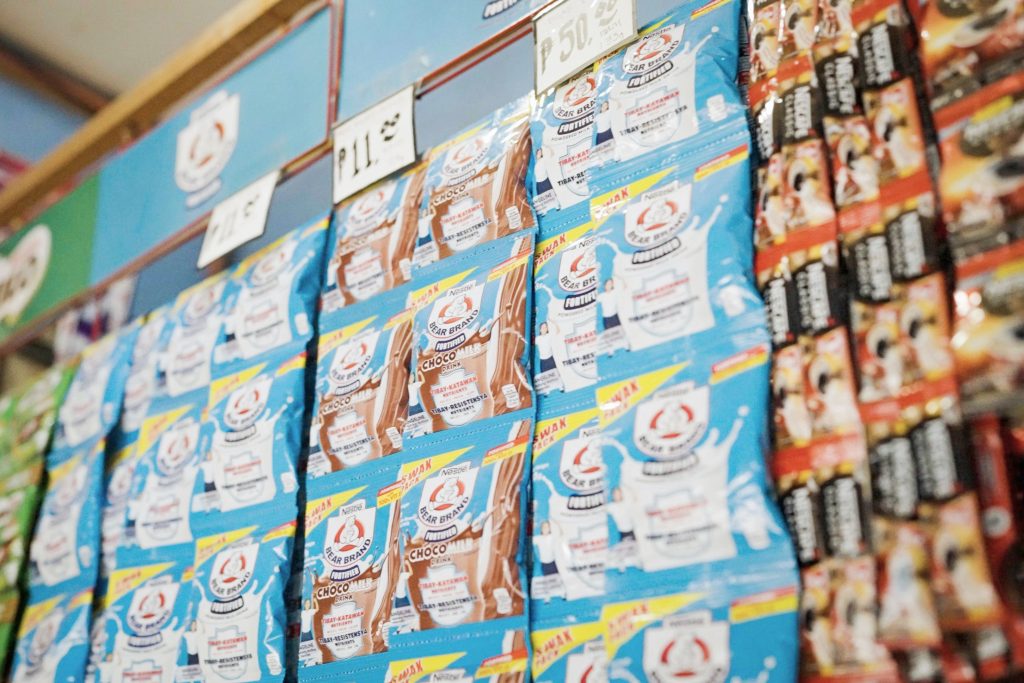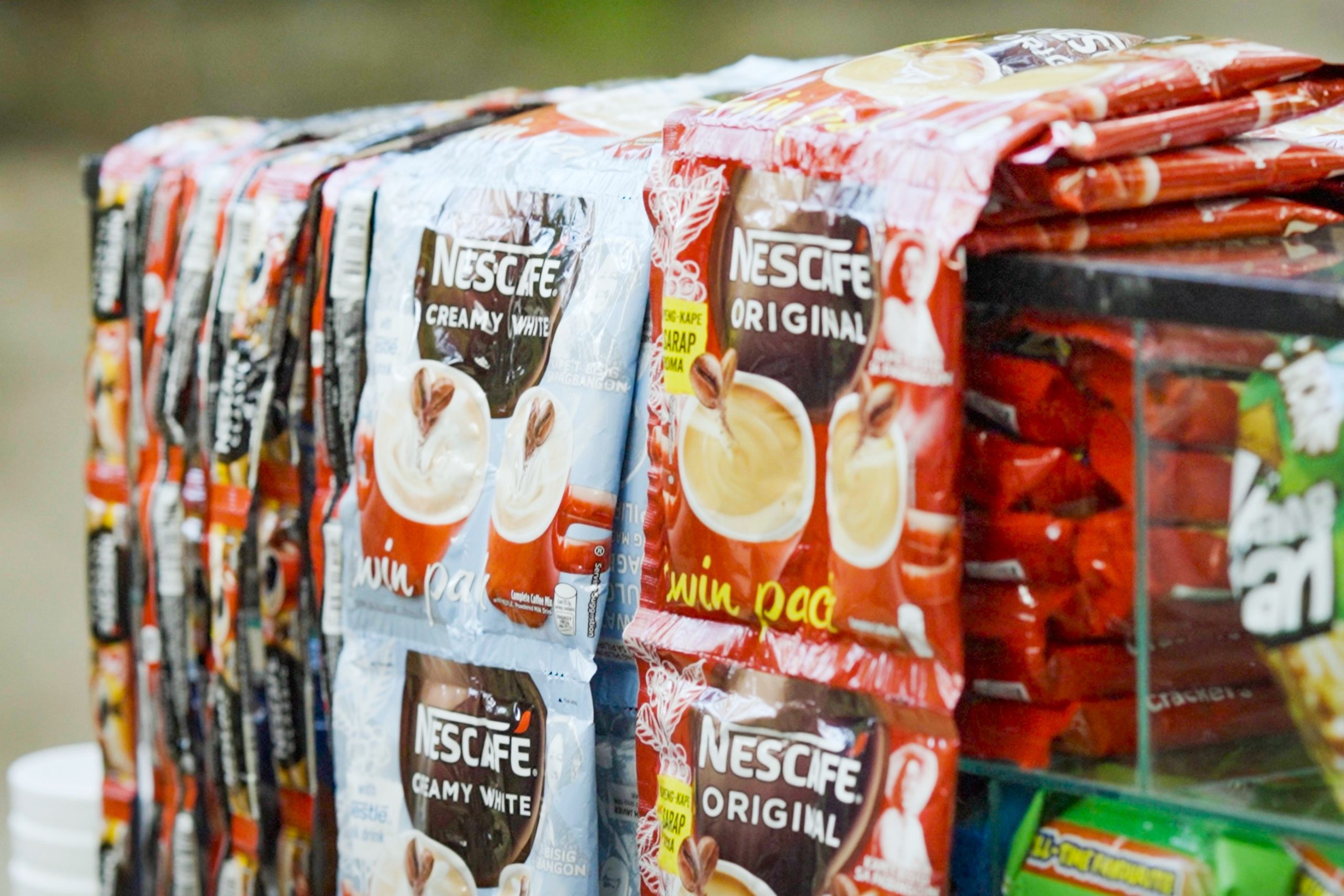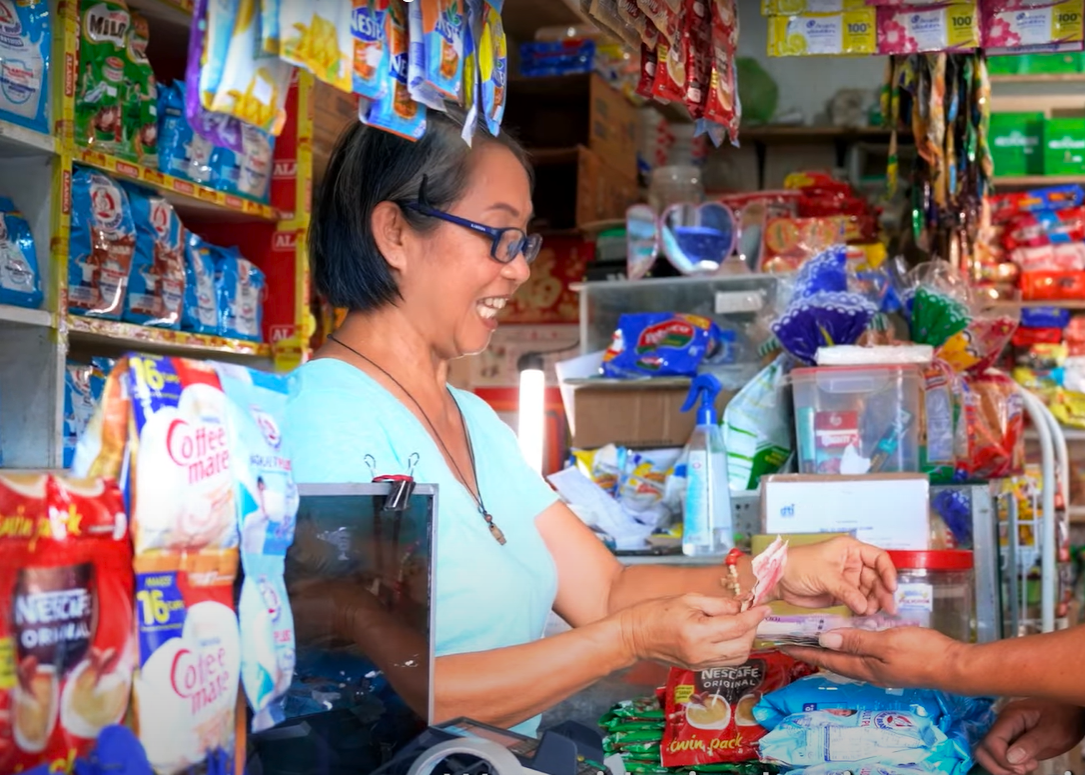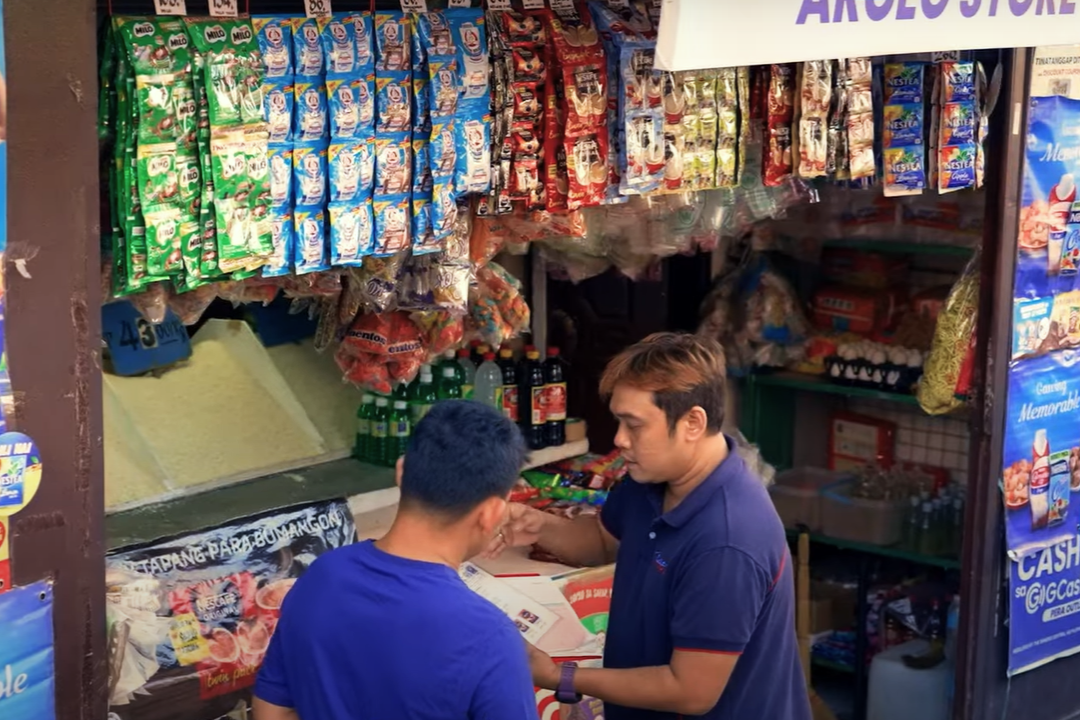
Filipinos often buy small quantities of goods, known as tingi. This practice has led to the rise of the sachet economy, where products like shampoo, toothpaste, coffee, and condiments are sold in single-use packages. It permeates through various market segments, making it a significant aspect of the nation’s economic landscape.
Tingi culture not only addresses the immediate needs of consumers but also offers businesses a unique opportunity to expand their customer base. By capitalizing on this consumer behavior, companies can penetrate a vast market, boost sales, and foster brand loyalty.
FAST Logistics Group, the leading end-to-end logistics and selling and distribution company in the Philippines, sheds light on why Filipinos love tingi and how businesses can leverage this culture for profitability.
What is Tingi Culture in the Philippines
Tingi refers to the practice of buying goods in small, affordable quantities suitable for one-time use. Prevalent in developing countries like the Philippines, this approach is particularly practical for low-income households that lack the resources to purchase products in bulk.
Filipinos consume about 164 million sachets daily. Fast-moving consumer goods (FMCG) including personal care items such as shampoo, conditioner, and toothpaste; household goods like detergent and cooking oil; and food items such as coffee, sugar, and snacks are commonly sold in these tiny packets, plastic sachets, or small bottles. These products are readily available across the Philippines, even in most remote areas, thanks to sari-sari stores.

Why Are Sachets Popular: Key Factors Driving the Tingi Culture
The sachet economy and tingi culture are more than just market trends; they are integral components of the Filipino way of life. Here are some reasons why they have become so prevalent in the country.
Affordability
Sachet products are essential in the Philippines as they cater to daily needs, from personal care to food items, making them indispensable to Filipino households. It also allows consumers to access quality items without the burden of buying in bulk, which can be financially straining for low-income individuals.
Affordability is particularly crucial in a country where a significant portion of the population earns modest incomes. By offering products in smaller, more budget-friendly quantities, companies can cater to a broader market.
Accessibility and Availability
People buy sachet products because of their accessibility and availability. These products are found not just in supermarkets but also in local sari-sari stores — small neighborhood shops that are a staple in Filipino communities. This broad accessibility ensures that even consumers in remote areas can easily purchase daily necessities.
Because sachet products are almost always available in these stores, consumers who prefer to buy only what they need for the day or week can easily get hold of these items. Sari-sari stores and sachet products have thus become an integral part of daily life in the Philippines.

Convenience
Filipinos frequently opt for single-use sachets because of their convenience. These compact packages are easy to carry, store, and use, making them perfect for daily consumption. Designed with a fast-paced lifestyle in mind, sachets cater to individuals who need quick and practical solutions. Whether for toiletries, snacks, or other everyday essentials, they seamlessly integrate into the routines of busy consumers.
Furthermore, sachets offer quick and efficient access to essential items without the need for large storage spaces. Their compact size ensures that customers can always have what they need within arm’s reach, without any hassle.
Product Sampling
Offering products in sachets provides consumers with the opportunity to try new products without committing to a larger, more expensive purchase. This approach significantly reduces the risk for customers, allowing them to test the product’s quality, effectiveness, and suitability before making a full investment.
It also encourages the sampling of a wider variety of products, catering to different tastes and preferences, and potentially increasing customer satisfaction and brand loyalty. Sachet products can also attract a broader customer base, including those who may be budget-conscious or hesitant to spend on unfamiliar items.
How Can Businesses Leverage Tingi Culture
The tingi culture has significant implications for businesses, affecting production, distribution, and marketing strategies. To capitalize on this consumer behavior, consider the following key points.
Smaller and Compact Product Packaging
To successfully tap into the sachet economy, businesses should develop smaller and more compact packaging for their products. Smaller plastic sachets are more appealing to consumers who are looking for cost-effective solutions to their immediate needs.
Manufacturers should therefore adapt their production lines to accommodate the growing demand for sachet products. This involves investing in specialized machinery and materials that can efficiently produce smaller, single-use packages. While this shift can lead to increased production costs due to the need for new equipment and materials, the higher turnover rate and the ability to reach a wider market often compensate for these additional expenses.

Cheaper Pricing
Adopting a pricing strategy that reflects the affordability aspect of tingi culture is crucial. By offering products at lower prices, businesses can attract price-sensitive consumers who might otherwise opt for cheaper alternatives. Competitive pricing can help companies gain a significant market share in a densely populated market like the Philippines.
Companies often sell sachet products at lower prices, typically a few pesos, to ensure affordability for daily wage earners and low-income households. This strategy allows even those with limited financial means to access essential goods without straining their budgets.
Promo Bundles and Discounts
Businesses can attract new customers with smaller introductory packages or appealing bundle deals that combine complementary products or services, allowing consumers to try new products at a reduced cost. These bundles can entice customers to purchase more while exploring the full range of offerings.
Moreover, seasonal or limited-time discounts create a sense of urgency and encourage customers to buy things while deals last. By making products more accessible and affordable to the broader market, businesses can expand their customer base and boost overall sales in the long run.
Product Range and Innovation
Offering a diverse range of products in sachet form can set businesses apart from the competition by catering to the diverse needs and preferences of consumers. Innovation in product development — whether it’s introducing new flavors or product variation — keeps consumers engaged and encourages repeat purchases.
Businesses can refine their product lines and sustain a competitive edge by consistently evaluating market trends and consumer feedback. This continuous analysis enables companies to identify emerging patterns, comprehend customer preferences, and adjust their strategies accordingly.
Frequent Deliveries
Given the nature of sachet products, consumers tend to purchase them more frequently. This has the potential to create a steady stream of revenue and attract a loyal customer base that relies on these smaller, more affordable options. Businesses should capitalize on this by ensuring a consistent supply chain and frequent delivery schedules.
In addition, frequent deliveries keep the shelves stocked and reinforce brand loyalty as consumers come to rely on the consistent availability of their favorite products. Meeting consumer demand empowers businesses to establish their market leadership and develop a reputation for reliability and efficiency.

Wide Distribution Network
Having an extensive distribution network is essential for businesses looking to leverage the tingi culture. This means having a presence in various retail channels, including sari-sari stores, convenience stores, supermarkets, and online marketplaces. By diversifying their distribution channels, companies can reach a broader customer base in different regions with varying shopping habits.
Collaborating with reputable selling and distribution companies that have established strong relationships with retailers can also help businesses expand their reach and accelerate growth. Companies should also consider investing in technology that allows them to monitor inventory levels and track sales data accurately.
FAST leverages sales force automation tools to maximize the sales efficiency of its team. Among these tools is the MyBuddy app, which enables FAST’s sales representatives to efficiently record and process orders from sari-sari store owners. Developed by the company’s in-house IT experts, MyBuddy features offline access capability, ensuring uninterrupted sales activities despite connectivity issues in remote areas.
Robust Partnerships with Sari-Sari Stores
Building strong relationships with sari-sari stores can be a game-changer for businesses looking to thrive in rural markets. These small, ubiquitous stores are integral to Filipino communities and serve as primary points of sale for many consumers, especially for daily essentials.
Notably, the trust and familiarity that sari-sari store owners have with their customers can significantly influence purchasing decisions, making these stores invaluable partners for companies looking to penetrate local markets. By forming robust partnerships with these local shops, businesses can ensure their products are always within reach of consumers.
Trusted Selling and Distribution Company in the Philippines
Selling and distributing small items across the vast and diverse archipelago of the Philippines presents significant challenges. The varying terrains, isolated islands, and logistical obstacles complicate the distribution process. As a result, companies and manufacturers often depend on selling and distribution partners with established networks and local market expertise to efficiently reach a wider audience.
Companies seeking to expand their consumer base can rely on FAST for their selling and distribution needs. With extensive knowledge of the archipelago, FAST ensures unhampered, on-time, and cost-effective delivery of the Philippines’ leading brands. Small retail outlets — including supermarkets, retailers, restaurants, eateries, and sari-sari stores in both urban and rural areas — can also rely on FAST for delivering products that are highly valued by customers
Watch the video below to learn more.
Adapting to Sachet Economy
The sachet economy offers a distinctive opportunity for businesses to establish meaningful connections with Filipino consumers. By comprehending the driving factors behind the tingi culture — such as affordability, convenience, accessibility, and product sampling — companies can devise strategies that deeply resonate with this market.
These strategies extend beyond merely repackaging products into smaller units; they demand a profound understanding of consumer behavior and market dynamics to tailor distribution methods accordingly. Whether you’re a retail entrepreneur or a small business owner, recognizing the significance of sachet products and the tingi system not only meets the needs of Filipino consumers but also unlocks fresh avenues for growth and customer engagement.
Companies like FAST play a pivotal role in facilitating selling and distribution in the Philippines, enabling businesses to tap into new market segments that were previously inaccessible. Connect with our Solutions Expert or visit http://linktr.ee/fastlogisticsph to learn how we can help your business
Categories
-

FAST Ahead
Includes case studies and testimonials of our partners as well as other featurettes from industry experts
-

FAST Hacks
We simplify logistics terms and provide practical tips and solutions for the DIY in you
-

FAST Highlights
Know more about our history, various brands, achievements, and news updates
-

FAST Moments
Get to know the people of FAST, our employee programs, as well as our various ways of giving back to the community
-

FAST Solutions
Learn more about the various logistics solutions that we cater to and offer our clients, as well as tech innovations, and service facilities



